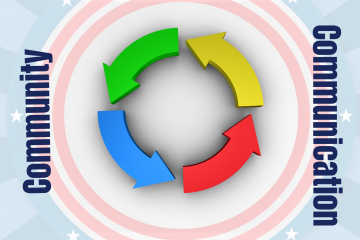I’d like to share a little bit about my Podcasting 4 Cs:

Over the past 12 years of podcast production, I’ve found that keeping these 4 concepts in mind is the best way to create a dynamic show which meets the needs of your audience.
In this post, I’m going to talk about the first of the 4 Cs – Content.
Obviously, you can’t have a podcast without content but it’s got to be content which means something to your prospective listeners, which strikes a chord, which moves them in some way.
The only reason anyone subscribes to a podcast is because it solves a problem for them. This doesn’t have to be a business or personal problem – it can just as easily be the problem of being bored and craving something interesting, funny or otherwise engaging to listen to.
If you and your listeners are all fanatical about a sports club, science fiction books or knitting, the problem you’ll be solving for them could be providing the latest news, discussing minute details or simply enthusing about your favourite topic.
Don’t worry if you think your subject is already being covered by one or more other shows. Imagine if Channel 4 in the UK had abandoned plans for a news show because the BBC and ITV were already doing news. What did they do instead? They worked out how they could put their own, unique spin on the news. They scheduled their shows at a different time to the other channels and they ended up attracting a different audience – or maybe even the same audience looking for a different slant on the day’s events.
Often, it’s just your own personality which can make the difference. You won’t present ideas or commentary in the same way as anyone else so don’t be afraid to cover popular topics. Find your own angle and you’ll automatically appeal to a niche of listeners. It’s far more powerful to talk to a small niche who love your message than a huge, general audience who won’t give a second thought to unsubscribing.
So, when you are planning content for your podcast, whether you are at the start of your podcasting journey or many episodes in, ask yourself questions like:
“What do my audience want to hear about?”
“What common problems do my audience have and how can I help to solve them?”
“What can my show offer that no others can?”
After all, your podcast isn’t really about you, it’s all about your audience. Without anyone listening, you might as well keep your audio files on your own computer.

0 Comments